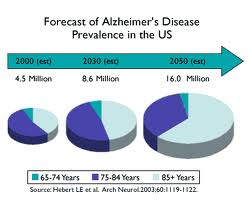Forgiveness for Senior Citizens and Those Nearing End of Life

(Image by StockSnap.io)
Do you know that people become happier as they get older? According to Mental Health News, happiness significantly rises for the over 50-crowd, and while physical health may decrease as people get older, mental well-being increases. Researchers attribute that to the lowered personal and professional expectations older people place on themselves.
Something else that comes with old age: an increased capacity to forgive others. It’s easier for older adults to forgive than it is for younger adults.
The study documenting those findings looked at individuals who ranged in age from 19-84 years and found that older adults showed higher levels of agreeableness than younger adults. How does this relate to forgiveness? More agreeable people are more forgiving than less agreeable ones. Consequently, older people are more apt to forgive.
Older people may have an edge on younger ones as far as happiness and forgiveness, but these positive emotions and traits aren’t restricted to a certain age. Young people can (and should) tap into empathy, compassion, forgiveness, and well-being too.
Do you know an older person who could benefit from the pressure-relieving payoff of forgiveness?
The Journey of Forgiveness: An Educational Program for Persons at the End of Life is an educational manual designed to help the dying person to forgive and can be used by any counseling professional. It is based on the process model of forgiveness developed by Dr. Robert Enright. Order a copy in the Store.
The Road to a Healthier Life in Your Golden Years
Exercise, get adequate sleep, eat right, reduce stress — you’ve probably been told to do all of these things to manage your health. All those actions contribute to a healthy lifestyle, and failing to follow them could lead you down a path of health issues and serious medical conditions. The risk of health problems due to poor lifestyle choices is even greater when you’re older.
The International Forgiveness Institute wants you to thrive throughout your life. If you’re a senior who hasn’t begun prioritizing your physical and mental health, you’ll find some helpful tips in these informative articles:
- Written by a certified personal trainer who specializes in programs for senior citizens, this informative article focuses on proper nourishment, stress reduction tips, mental and physical health, and the important role of forgiveness.
- Sleep And Aging | A Handbook For Seniors And Caregivers is a comprehensive and helpful look at the connection between sleep and aging that includes links to nearly 30 authoritative health specialists, leading medical facilities, and governmental/regulatory agencies.
- An average human being walks an estimated 128,000 kilometers (79,535 miles) in a lifetime according to Australia’s Sanders Podiatry Clinics–the equivalent of walking three times around the world. Give your feet the care they need in order to maintain your quality of life.
Forgiveness and Alzheimer’s Disease
 Do you know someone struggling with Alzheimer’s Disease or a caregiver dealing with an Alzheimer’s victim? Although there is no study showing a link between unforgiveness and Alzheimer’s, there are indications that this could be the case in an indirect sense. Consider this article, The Healing Power of Forgiveness, written by a board-certified psychiatrist and neurologist, from the Fortanasce-Barton Neurology Center in California.
Do you know someone struggling with Alzheimer’s Disease or a caregiver dealing with an Alzheimer’s victim? Although there is no study showing a link between unforgiveness and Alzheimer’s, there are indications that this could be the case in an indirect sense. Consider this article, The Healing Power of Forgiveness, written by a board-certified psychiatrist and neurologist, from the Fortanasce-Barton Neurology Center in California.
The article presents evidence that high levels of anger can lead to more toxins going to the brain (the study was done on mice and so we must be careful in extrapolating this to humans). That same article cites a study on humans showing that when presented with very disturbing stimuli, the research participants’ brains showed signs of agitation “and exhaustion of the neurons, therefore increasing their stress and cortisol levels that will interfere with good neuronal transmission.” This evidence indicates that a link between unforgiveness (agitation, anger) and brain function has merit as a hypothesis.
- When it comes to forgiveness and Alzheimer’s, here is a helpful article from Harvard Medical School on How to Talk About Death, Forgiveness and Making End-of-Life Decisions.
- Currently, approximately 5.3 million Americans of all ages have Alzheimer’s Disease according to the Alzheimer’s Association – 5.1 million people aged 65 and older, 200,000 people aged under 65. Abuse of senior citizens with Alzheimer’s Disease (estimated at nearly 50%) is one of the most overlooked public health hazards in the United States. Learn more at: How at Risk for Abuse Are People with Dementia?
Battling Elder Abuse in Nursing Homes in the Era of COVID-19
Elder abuse is an alarming worldwide phenomenon that has unfortunately increased during the COVID-19 pandemic. Nursing home residents, many of whom previously had been subject to elder abuse, have been especially vulnerable to contracting and dying from the novel coronavirus. As of August 2021, more than 133,000 nursing home residents have died from COVID-19 complications in the 15,000 licensed nursing homes in the US, according to the Centers for Medicare and Medicaid Services.
Worldwide, about 16 percent of older adults in institutional settings suffer from elder abuse, according to a study published in the European Journal of Public Health. That number is likely low, however, as elder abuse is often unreported. A long-term study by the World Health Organization showed that elder abuse victims are twice as likely to die prematurely than individuals who have not suffered from elder abuse.
The reality is that when we place our elder loved ones in a nursing home, we expect they will be treated with dignity and respect. Since that doesn’t always happen, it is crucial to understand what nursing home abuse is, the different types of abuse, signs of abuse, and how to prevent it. All those subjects are addressed in this comprehensive dissertation: Everything You Need to Know About Nursing Home Abuse.
Forgiveness interventions, like those outlined above, can be important mediating factors when addressing this issue.
Several excellent resources are available to help you choose the right counselor:

(Image by StockSnap.io)
1. The American Psychological Association (APA) has a helpful fact sheet called How to Choose a Psychologist with sections including “Credentials to look for,” “What to consider when making the choice,” and “Questions to ask.” The APA also maintains a searchable database called Psychologist Locator where you can search by zip code, city, state, and area of specialization.
2. Psychology Today has assembled a directory of therapists that is searchable by state, by major US cities, by Canadian provinces, and by
major Canadian cities. The database includes Psychologists, Counselors, Therapists, Psychiatrists, and Social Workers. You can even search based on the type of counseling you need including: divorce, addiction, anger management, domestic abuse, family conflict, infidelity, relationship issues and more. The online directory is called Find a Therapist.
3. BetterHelp.com, the world’s largest c-counseling platform, is a valuable website for the growing number of couples who are choosing to work with online counselors and therapists. Fill out a short BetterHelp Questionnaire to get matched with one or more of the site’s 2,200+ licensed therapists (they all possess a minimum of 3 years and 2,000 hours of hands-on experience) or read helpful articles like Benefits of Online Couple Counseling.
4. Read Best Online Therapy Programs of 2023: Reviews and Pricing on the website Everyday Health.
Keep in mind that looking for a therapist is a lot like dating. You have to meet a few different ones before you find your perfect match. Here is another helpful list of 14 Therapist-Approved Tips for Finding a Therapist You Can Trust.
With that information in hand, you can then ask your physician or another health professional to recommend a reliable psychologist or counselor. Call your local or state psychological association. Consult a local university or college department of psychology. Ask family and friends. Contact your area community mental health center. Inquire at your church or synagogue. Use one or more of the resources listed above
FOR IMMEDIATE HELP: If you feel you are in a crisis, or if you or any other person may be in danger, please contact one of these Crisis Resources for immediate assistance in the US or around the world.
Did a family member pass away before you could make amends?
Or the person hurt you so badly that making things right seemed impossible. How did it make you feel? Can you forgive yourself for any guilt that you have as a result of not taking action? Maybe the only feelings you’ve been able to muster over time are resentment or outright hatred. Forgiveness could be the answer. Learn more by reading any of Dr. Enright’s self-help books.
Additional How-to-Forgive Resources:
- Begin your forgiveness journey by exploring Self-Forgiveness.
- Learn a step-by-step approach to Forgiving Others.
- Preserve you loving relationships or your marriage with Forgiveness for Couples.
- Become a “Peace Builder” by signing The Forgiveness Pledge.



